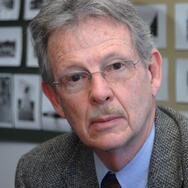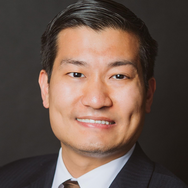Buffers or Barriers? Reservations and Rebel Parties

Peace settlements ending civil wars often pursue political solutions that require violent actors to transition to political parties and engage with politics peacefully. Some provide reserved seats, quotas, or guaranteed cabinet positions to safeguard these electoral transitions. What are the consequences of safeguards on rebel party grassroots? Scholarship on political affirmative action generally concludes that reservations are beneficial. However, safeguards may hinder the consolidation of rebel parties by generating counterproductive incentives, demobilizing the party base. I study the case of the former FARC-EP party Comunes, who were granted 10 legislative seats in the 2016 peace agreement. I implement a priming experiment with this crucial but difficult to reach population to assess the consequences of this provision. On average, primed participants reported less interest in a range of party-building activities. However, heterogeneity suggests these safeguards may come at the cost of civilian grassroots specifically, further concentrating rebel party activism among ex-combatants.
ABOUT THE SPEAKER
María Ignacia Curiel is a Postdoctoral Fellow at the Center on Democracy, Development and the Rule of Law (CDDRL) at the Freeman Spogli Institute for International Studies (FSI) at Stanford University. She is an empirical scholar using experimental, observational, and qualitative data to study violent conflict and elections, peacebuilding, and representation.
Her recent work analyzes political parties with rebel origins and the conditions that shape their commitment to electoral competition. This work draws both from an in-depth empirical study of Comunes, a Colombian political party formed by the former FARC guerrilla, and from the study of broad patterns in rebel party behaviors across contexts. She received her PhD in Political Science from the Department of Politics at New York University.
She has previously conducted research for the United Nations University Center for Policy Research on excombatant reintegration into civilian life, the Inter-American Development Bank on the evolution of Venezuela’s energy infrastructure, and a Caracas-based organization on state-sponsored killings and police militarization. She was born in Caracas, Venezuela, and lived in New York from 2011-2023.
Virtual to Public. Only those with an active Stanford ID with access to Encina E008 in Encina Hall may attend in person.
Virtual to Public. Only those with an active Stanford ID with access to Encina E008 in Encina Hall may attend in person.
María Ignacia Curiel
María Ignacia Curiel is a Research Scholar at the Center on Democracy, Development and the Rule of Law and Research Affiliate of the Poverty, Violence and Governance Lab at Stanford University. Curiel is an empirical political scientist using experimental, observational, and qualitative data to study questions of violence and democratic participation, peacebuilding, and representation.
Her research primarily explores political solutions to violent conflict and the electoral participation of parties with violent origins. This work includes an in-depth empirical study of Comunes, the Colombian political party formed by the former FARC guerrilla, as well as a broader analysis of rebel party behaviors across different contexts. More recently, her research has focused on democratic mobilization and the political representation of groups affected by violence in Colombia, Mexico, and Venezuela.
Curiel's work has been supported by the Folke Bernadotte Academy, the Institute for Humane Studies, and the APSA Centennial Center and is published in the Journal of Politics. She holds a Ph.D. in Political Science and dual B.A. degrees in Economics and Political Science from New York University.

 FSI researchers work to understand continuity and change in societies as they confront their problems and opportunities. This includes the implications of
FSI researchers work to understand continuity and change in societies as they confront their problems and opportunities. This includes the implications of 




















